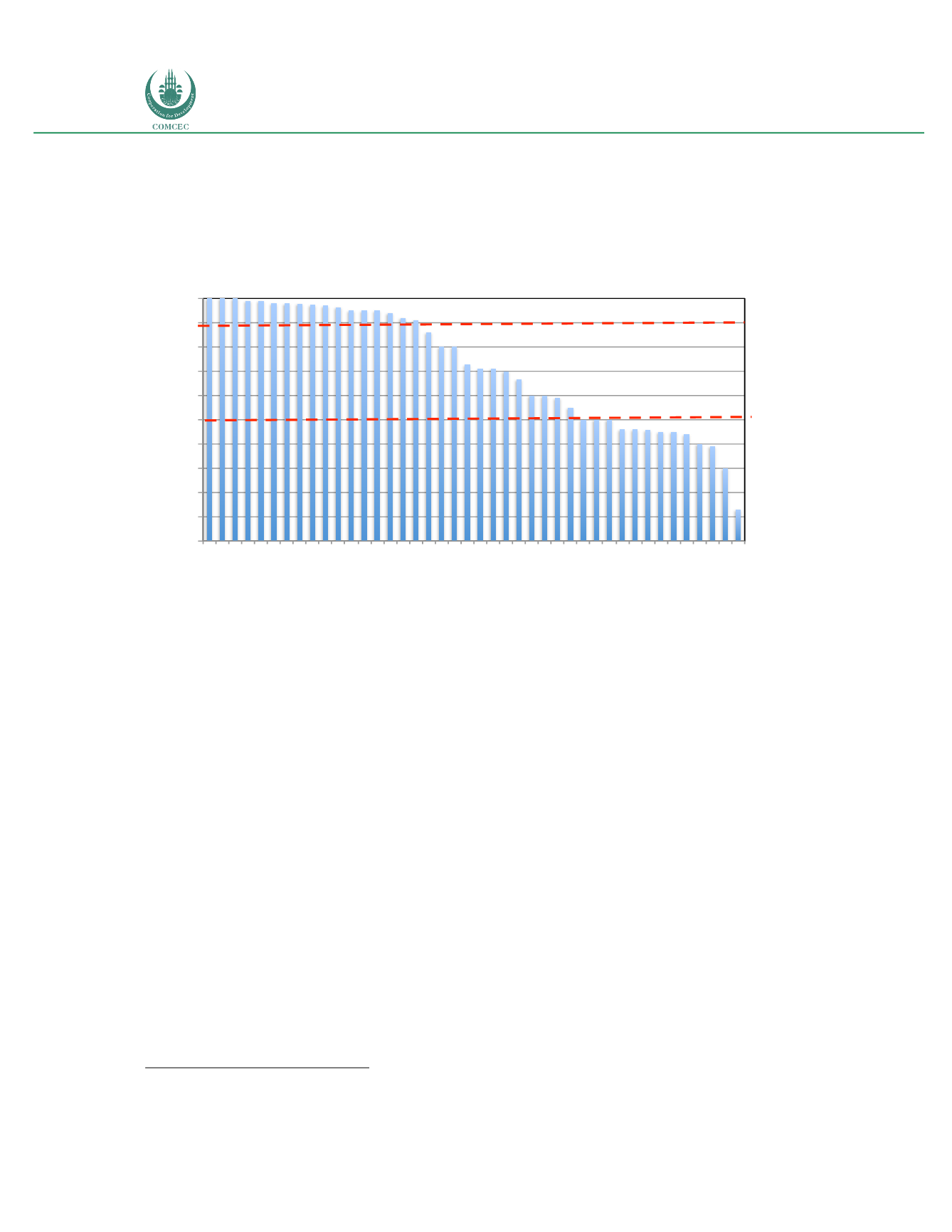

Increasing Broadband Internet Penetration
In the OIC Member Countries
72
As table 22 indicates, Arab OIC Member Countries have increased their mobile broadband
service coverage faster than the other regions. A country perspective provides a perspective of
the wide disparity still existing across the OIC Member Countries (see figure 18).
Figure 18: OIC Member Countries: Mobile broadband coverage (3G) (percent of population)
(2015)
Source: Regulatory Agencies; International Telecommunications Union; Telecom Advisory Services analysis
According to the data presented in figure 18, there are 16 OIC Member Countries that have
reached a mobile broadband coverage in excess of 90%, while 12 have coverage between 90%
and 50%, and less than 50% of the population is covered by the service in the remaining 13
countries. These statistics are very important since they shed a light on the critical problem
facing each of the OIC Member Countries when it comes to broadband penetration. For those
countries that have coverage in excess of 90% of the population, the critical challenge is how to
close the demand gap. For countries with coverage less than 50%, they need to address the
supply side before they focus on stimulating demand.
In the case of 4G coverage, while statistics are not comprehensive for all OIC Member
Countries, crowdsourcing sites
34
like Open Signal provide a view of service coverage and
download speed for selected carriers and countries (see table 23).
34
Crowdsourcing sites like Open Signal rely on input of smartphone users to compile coverage and download speed
statistics for wireless carriers around the world.
0%
10%
20%
30%
40%
50%
60%
70%
80%
90%
100%
Kuwait
Maldives
UAE
Albania
Jordan
Qatar
Bahrain
Egypt
Azerbaijan
Saudi Arabia
Lebanon
Turkey
Gabon
Oman
Tunisia
Malaysia
Brunei
Gambia
Morocco
Suriname
azakhstan
Bangladesh
Cote d'Ivoire
Syria
Nigeria
Indonesia
Iran
Kyrgistan
Iraq
Cameroon
Mozambique
Togo
Algeria
Pakistan
Sudan
Benin
Uganda
Uzbekistan
Afghanistan
Guinea
Somalia
Chad
















